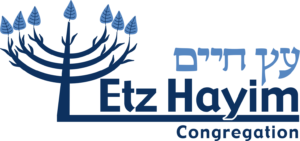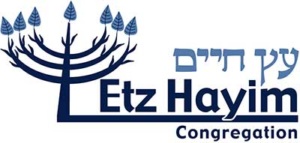While most holidays have an entire tractate of Talmud dedicated to their little details, Hanukkah appears as a side conversation in the middle of the tractate about Shabbat (21b). The rabbis are discussing what is the essential mitzvah, commandment regarding Hanukkah and how to perform it. You probably already know that we light one extra candle per night for eight nights, but it was not the case in the past for everyone. Here we learn form Hillel and Shamai about the origins of that practice:
תָּנוּ רַבָּנַן: מִצְוַת חֲנוּכָּה, נֵר אִישׁ וּבֵיתוֹ. וְהַמְהַדְּרִין, נֵר לְכׇל אֶחָד וְאֶחָד. וְהַמְהַדְּרִין מִן הַמְהַדְּרִין, בֵּית שַׁמַּאי אוֹמְרִים: יוֹם רִאשׁוֹן מַדְלִיק שְׁמֹנָה, מִכָּאן וְאֵילָךְ פּוֹחֵת וְהוֹלֵךְ. וּבֵית הִלֵּל אוֹמְרִים: יוֹם רִאשׁוֹן מַדְלִיק אַחַת, מִכָּאן וְאֵילָךְ מוֹסִיף וְהוֹלֵךְ.
The Sages taught: The basic mitzva of Hanukkah is a light per person and his household. And the mehadrin, i.e., those who are meticulous in the performance of mitzvot, kindle a light for each and every one in the household. And about the mehadrin min hamehadrin (the even more meticulous people), Beit Shammai say: On the first day one kindles eight lights and, from there on, gradually decreases the number of lights. And Beit Hillel say: On the first day one kindles one light, and from there on, gradually increases the number of lights.
(…) וְטַעְמָא דְּבֵית הִלֵּל דְּמַעֲלִין בַּקֹּדֶשׁ וְאֵין מוֹרִידִין.
(…) The reason for Beit Hillel’s opinion is that the number of lights is based on the principle: One elevates to a higher level in matters of sanctity, and one does not downgrade.
As the school of Hillel teaches us, we do from one to eight lights as a way to symbolize the growth we ought to achieve this week. We grow in holiness, we add more light to our homes and to the world, we take that extra step, walk the extra mile to do the extra-ordinary. Little by little. One by one. This is how we achieve holiness. This is not a concept to be too philosophical and far from simple comprehension. Holiness is to be felt and lived through these experiences that add meaning and purpose to our lives.
On Hanukkah we remember our ancestor’s struggle against an oppressive empire that could not accept a plurality of opinions regarding religion. To be honest, our ancestors did not really accept it either, they just did not have the power to be hegemonic. As I reflect about their experience in their context, I light my candles this week with a heavy heart and an optimistic smile. A heavy heart because we as a society are not too far from our ancestors in accepting a multitude of narratives and perspectives of the unknown. With an optimistic smile because we are walking in the right direction. Little by little, candle after candle.
(…) תָּנוּ רַבָּנַן: נֵר חֲנוּכָּה מִצְוָה לְהַנִּיחָהּ עַל פֶּתַח בֵּיתוֹ מִבַּחוּץ. אִם הָיָה דָּר בַּעֲלִיָּיה מַנִּיחָהּ בַּחַלּוֹן הַסְּמוּכָה לִרְשׁוּת הָרַבִּים.
(…)The Sages taught: It is a mitzva to place the Hanukkah lamp at the entrance to one’s house on the outside, If he lived upstairs, he places it at the window adjacent to the public domain.
Join me in lighting the candles this week and spreading the light of pluralism, respect, and compassion. We can do it. We ought to do it, one by one, increasing and not decreasing.


